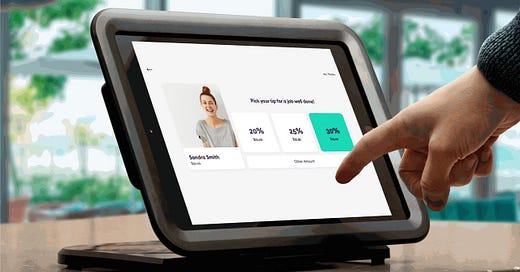Tipped Off (#384)
Excessive tipping does not create a positive customer experience. Leaders should pay attention.
A month before COVID-19 shut down the world, I wrote a popular, surprisingly controversial Friday Forward called Tipping Point about restauranteur Danny Meyer’s new experiment with tip-free restaurants in New York City. The topic clearly struck a nerve as I received quite a few replies from people who were frustrated by the American culture of tipping, …
Keep reading with a 7-day free trial
Subscribe to Friday Forward to keep reading this post and get 7 days of free access to the full post archives.



